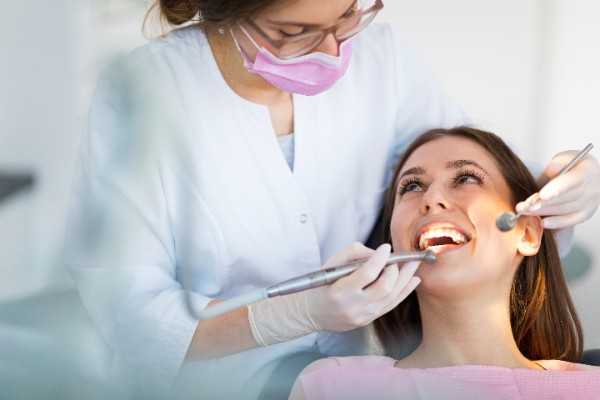healthcare

July 22,2025 • 6 min read
Is Charcoal Toothpaste Truly a Whitening Agent?

In recent years, charcoal toothpaste has become a trending product in the oral care aisle, fuelled by promises of naturally whiter teeth and deep cleaning power. Often spotted on influencer pages and shelves of natural beauty stores, it’s pitched as a chemical-free alternative to conventional teeth whitening products. But does it really live up to the hype?
While the appeal of a black paste that delivers a sparkling white smile is undeniable, dental professionals remain cautious. The surge in popularity raises important questions about safety, long-term effects, and scientific backing. Let’s explore whether charcoal toothpaste truly delivers whitening results or if it's simply a short-lived fad.
What Is Charcoal Toothpaste?
Charcoal toothpaste contains activated charcoal, a fine, black powder made by heating natural substances like wood or coconut shells. Its porous nature allows it to absorb toxins and surface impurities, making it popular in oral care products.
Key points:
- Used for its mild abrasive properties
- Believed to bind with stains and toxins
- Claims include stain removal, breath freshening, and detoxification
- Many variants lack fluoride, vital for enamel strength and cavity prevention
While it may offer short-term whitening, dental experts recommend caution, especially with daily use and non-fluoride formulations.
How Does It Claim to Whiten Teeth?
The whitening promise of charcoal toothpaste rests on two main principles: abrasion and adsorption.
Abrasive Action:
Charcoal is mildly abrasive and scrubs away surface-level stains caused by coffee, tea, wine, or tobacco. However, this polishing action only addresses extrinsic stains, those on the outer enamel, not intrinsic discolouration found deeper in the tooth.
Adsorption Ability:
Unlike absorption, adsorption means particles bind to the surface of unwanted substances, in this case, stain molecules. The charcoal is believed to attract and bind these particles, removing them as you rinse.
While these mechanisms may result in visibly cleaner teeth, they do not match the effectiveness of clinically approved bleaching agents used in professional teeth whitening procedures.
Scientific Evidence: Does It Really Work?
Dental professionals, including many a dentist in Colchester, often express concern about the lack of robust, long-term studies confirming charcoal toothpaste’s safety and efficacy. Most claims are anecdotal or supported by limited research.
- A study published in the British Dental Journal warned that many charcoal toothpastes lack fluoride, increasing the risk of cavities.
- The American Dental Association (ADA) does not currently approve any charcoal-based toothpaste due to concerns about enamel wear and insufficient clinical trials.
Overuse of charcoal toothpaste may lead to enamel erosion, making teeth more sensitive and susceptible to staining. It can also cause grey or black discolouration in dental restorations like crowns or fillings.
Pros and Cons of Charcoal Toothpaste
To help you better understand whether charcoal toothpaste suits your needs, here’s a balanced overview:
|
Pros |
Cons |
|
Can lift minor surface stains |
May erode enamel if used frequently |
|
Offers a natural alternative to chemical products |
Lacks fluoride in many formulations |
|
Provides a unique, trendy oral care option |
No proven benefit for deep whitening |
|
May help freshen breath short term |
Potential for increased tooth sensitivity |
Safer Alternatives for Whitening Your Teeth
If you’re aiming for a noticeably whiter smile without the risks, safer and more effective options are available:
- Professional Treatments: Booking a session for teeth whitening Colchester services can deliver significant and safe results using dentist-approved methods.
- Whitening Toothpaste (with fluoride): These gently polish enamel while preventing decay, making them ideal for everyday use.
- Whitening Strips and Gels: Over the counter products approved by dental associations offer mild bleaching and are useful between professional treatments.
- Routine Cleanings: A hygienist can remove stains during your biannual clean, helping to restore natural brightness without abrasive products.
A consultation with a dentist in Colchester will help determine which whitening method is suitable for your enamel strength, lifestyle, and sensitivity level.
Should You Use Charcoal Toothpaste? Consider This First
Before adopting charcoal toothpaste into your daily regimen, it’s important to evaluate your oral health and speak with your dentist. Some individuals may tolerate occasional use, but daily application can increase the risk of irreversible enamel damage.
Key Factors to Consider:
- Do you have sensitive teeth or thin enamel? If so, avoid abrasives that can worsen your condition.
- Does your toothpaste include fluoride? If not, you may risk decay and cavities.
- Have you had restorations (crowns, veneers)? Charcoal may discolour them over time.
- Are you pregnant or taking medication? Consult your dentist for product compatibility.
If any of the above apply, it’s best to opt for professional whitening or a gentler, dentist-approved toothpaste instead.
The Role of Diet in Natural Teeth Whitening
What you eat can play a significant role in the colour and overall health of your teeth. While certain foods stain enamel, others can help naturally polish and protect your smile.
Helpful foods include:
- Crunchy fruits and vegetables (e.g., apples, carrots)
- Dairy products rich in calcium
- Strawberries (contain malic acid that may lift stains)
To avoid:
- Coffee, tea, red wine
- Tomato sauces and soy sauce
Maintaining a balanced diet not only supports general health but also enhances the longevity of your whitening results, especially when combined with dentist-approved care.
Post-Whitening Maintenance Without Charcoal
For those who have undergone teeth whitening Colchester treatments or are planning to do so, maintaining results is key. Here are enamel-safe ways to keep your smile bright:
- Use fluoride toothpaste twice daily
- Rinse after consuming staining foods like coffee or berries
- Avoid smoking and excessive alcohol
- Schedule regular hygiene appointments
- Drink through a straw when enjoying dark beverages
These simple habits help preserve whitening results without resorting to potentially damaging trends.
Conclusion
While charcoal toothpaste may offer a temporary polish and novelty appeal, the science behind its whitening ability remains inconclusive. Its abrasive nature may cause more harm than good, particularly if used frequently or incorrectly. Most dental professionals recommend erring on the side of caution.
For a brighter smile that’s both safe and long-lasting, professional advice and evidence-based treatments are essential. In Colchester, patients have access to trusted solutions like in-clinic whitening, fluoride treatments, and comprehensive oral evaluations to ensure a tailored and effective approach. Investing in your smile should always start with informed choices and guidance from experienced dental practitioners.
Emergencydentistcolchester Details
User Profile
- Full name
- Emergencydentistcolchester
- Email address
- hello@EmergencyDentistColchester.co.uk
- Join Date
- 2025-07-22
- State
- City
- Pincode
- Address
- Follow us on Facebook
- Follow us on Twitter
- Website Name
- Bio